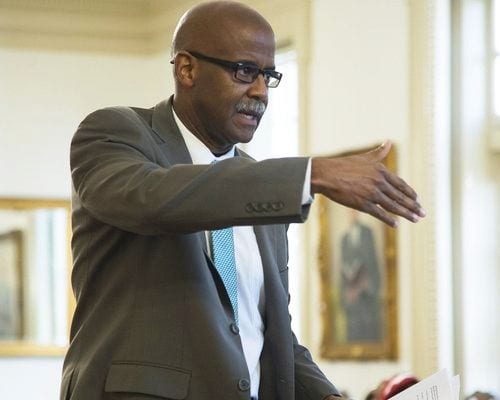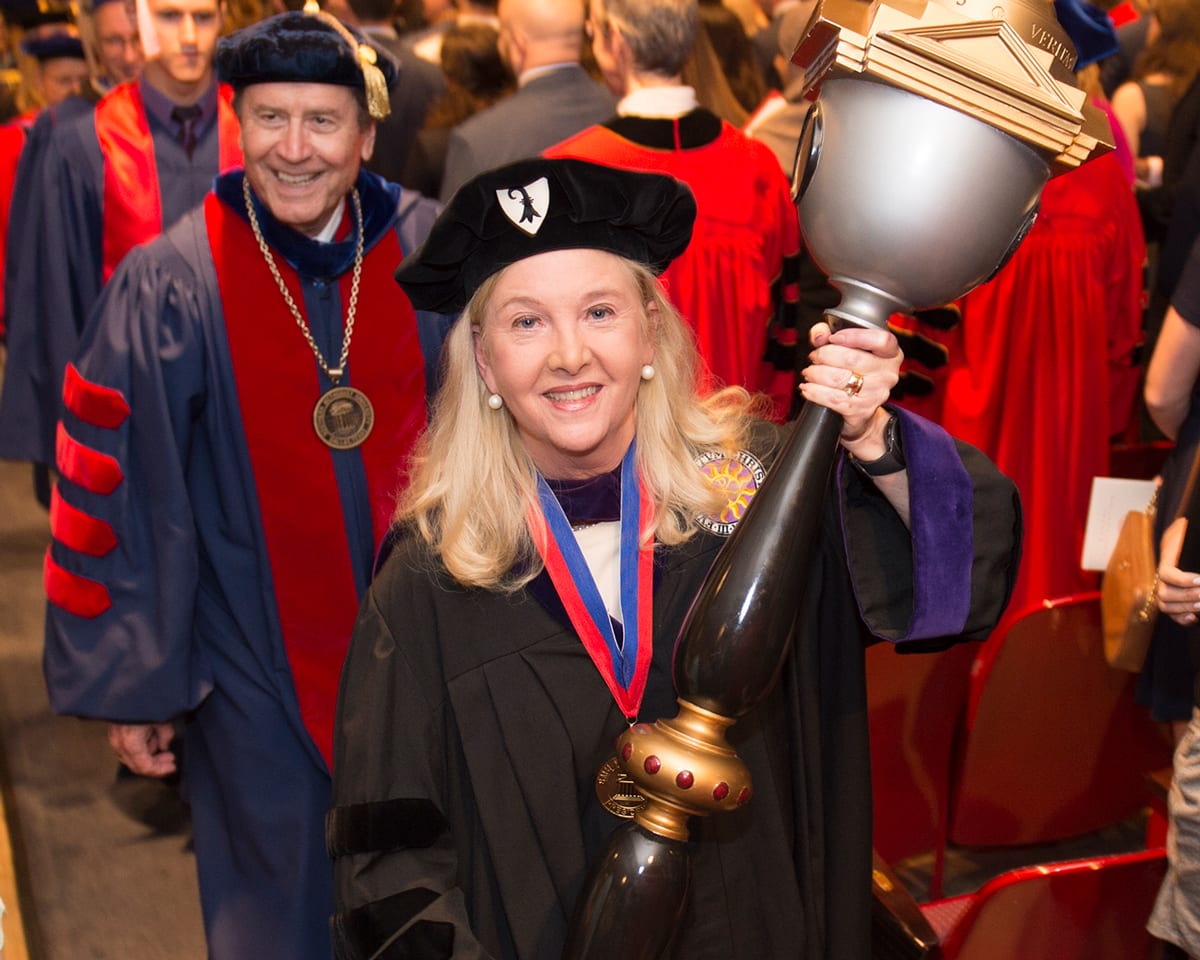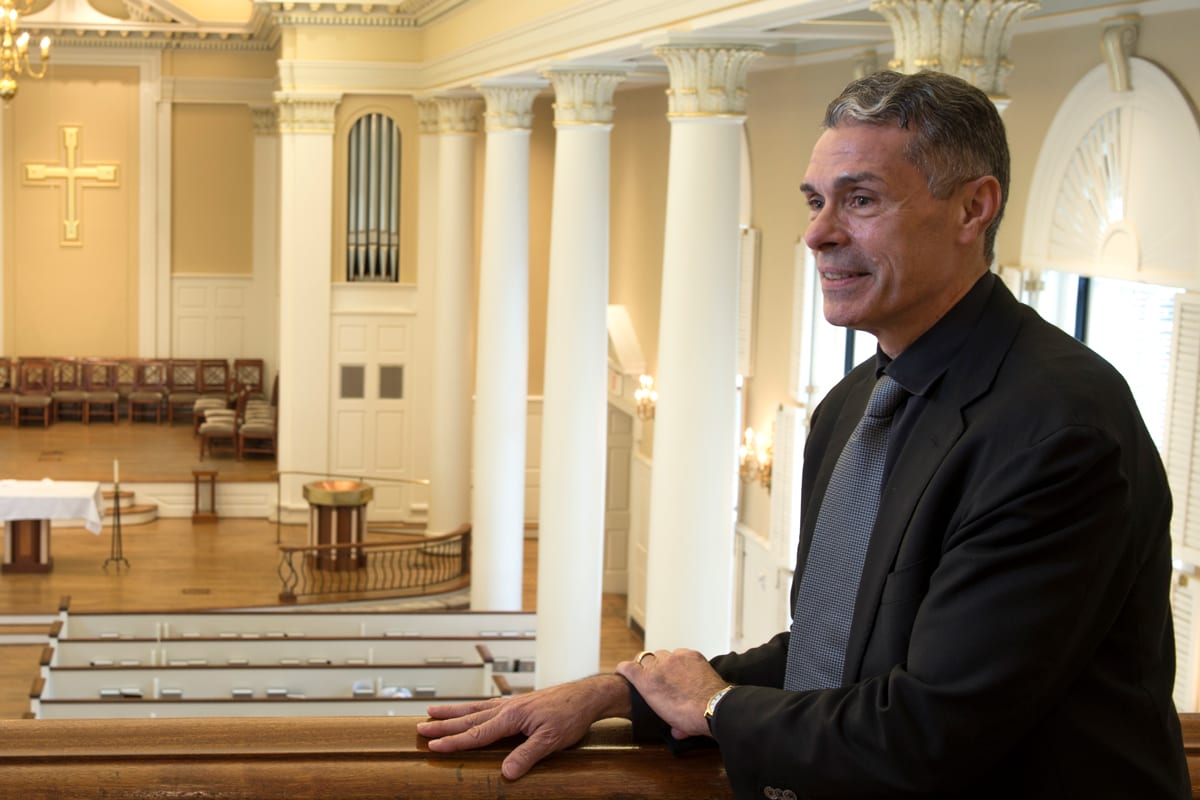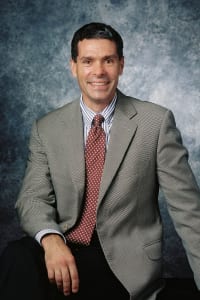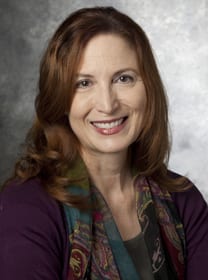Walk by Jaime Clark-Soles’ office, and you might overhear her on the phone, saying something like, “Sure, I’ll do Evil.”
That’s because she’s often asked to tackle the topic of evil at panel discussions and other gatherings. To many students on campus, she’s best known as the professor who teaches the course “Evil, Suffering, Death and the Afterlife.”
But as professor of New Testament and Altshuler Distinguished Teaching Professor at Perkins, Jaime Clark-Soles’ sphere of influence expands well beyond the campus.

She averages about three speaking gigs a month, locally, nationally or internationally, ranging from lectures at other universities (a recent one was at Belmont University in Nashville), to leading clergy workshops, to laity education in churches of various denominations. She recently finished recording a series of videos about the Book of Glory, the second half of the gospel of John, as part of a Lenten study at St. Luke’s United Methodist Church in Houston.
“I’m out speaking, teaching and preaching to anybody and everybody interested,” she said. “Have Bible, will travel.”
That fast travel pace may slow just a bit in the coming months as Clark-Soles finishes up two new books: a six-lesson study of 1 Corinthians for Abingdon Ministry Resources, and a “massive” volume on women in the Bible as part of the Interpretation Commentary series, to be published in 2020 by Westminster John Knox Press.
“I know, there are already many books about women in the Bible, so I’ve identified eight ways this particular book will serve the readers,” she said. “One goal is to lift up those women in the Bible who’ve been ignored in the past but are crucial to our tradition.”
Another is to recover women whose person or legacy has been erased from Christian tradition. For example, there’s Junia, a female apostle who appears in Romans 16. Translators added an “s” to change her name to the masculine, Junias.
“She literally got erased from history by an ‘s,’” she said. “I address those translation moves that demote or erase women. They were political moves.”
A third goal entails correcting misinterpretations of women in the Bible, such as the Samaritan woman, Mary Magdalene, and Mary the mother of Jesus.
With help from David E. Schmersal, reference and digital services librarian at the Bridwell Library, Clark-Soles’ book will note where each woman’s story appears in the Lectionary – or not. The goal is to help pastors and teachers connect the material to the Lectionary – but also to understand that many of these stories were omitted from the Lectionary.
She’s also preparing to co-teach a hybrid course this fall at Houston Methodist Hospital as part of Perkins’ Houston-Galveston program. The subject is “Disability, the Bible and Theology.” Portions of the course will be open to chaplains, nurses and other health care professionals.
On top of all this work, she also serves as the founding director of the Baptist House of Studies at Perkins. The “BHS,” as it’s called, provides the opportunity for Baptist students to receive a stellar ecumenical education while being distinctively formed and professionalized in the Baptist tradition. This includes coursework, ordination preparation, internships and connections within the various trajectories of the Baptist family. Clark-Soles, an ordained Baptist minister, is spearheading events such as a campus visit on October 3 by Amanda Tyler, executive director of the Baptist Joint Committee, and hosting the Baptist-affiliated Shurden Lectures at Perkins in the spring of 2020.
Clark-Soles is also an avid traveler but is most proud of the four Global Theological Immersion Trips she has led in recent years with Perkins students and laypeople to Palestine and Israel, which includes a curriculum she calls “Dead Stones and Living Stones.”
“Certainly, we visit meaningful places from the Bible, but we also spend time on current life in the Holy Land, including residing in the West Bank and visiting refugee camps,” she said. “We’re there to learn and hear firsthand about the conflict from both Jewish and Palestinian presenters.”
Teaching Specialties
Johannine literature (Gospel of John; 1-3 John; Revelation); evil, suffering, death and afterlife; New Testament ethics; disability and the Bible; Koine Greek; Israel/Palestine Cultural Immersion trips
Research Interests
Johannine literature; evil, suffering, death and afterlife; Disability Theory and the New Testament; the use and authority of Scripture; women in the Bible; gender and the Bible
Favorite Bible Verse
John 10:10 – I came that they might have life and have it abundantly. “That’s how I decide if something is Christian or not. Does it promote life for all of God’s creation? Or does it not?”
Book on Her Nightstand
The Anatomy of Peace – Resolving the Heart of Conflict by The Arbinger Institute
Fantasy Dinner Party
“I’d invite some of the people I’ve been studying and writing about all my life: Mary Magdalene, Mary, Mother of Jesus, the Samaritan Woman, Paul and Jesus. I would really love to sit around a table and just ask them to tell me what life was really like for them. I’d ask, ‘What made you laugh?’ You have to imagine they had some kind of joy.”
Pets
A rescue dog named Connor. “We adopted him thinking he’d swim with my son and run with me,” she said. “He doesn’t do either. He has taught us a lot about the fact that everyone comes with a backstory that shapes them and they are not here to be what we want them to be. Luckily, he has accepted us as we are as well, with enthusiasm. He’s been a learning experience in the meaning of love.”
Hobbies
Running, racquetball, paddleboard, biking, lifting weights. “I like to be physically active,” she said.
Favorite Travel Destination
“Italy. I am a military brat and went to high school there. It feels like a home base. And the food can’t be beat!”

